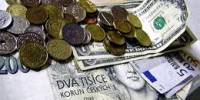Capital Market in Bangladesh
Capital market is a mechanism to flow fund from the hands of small savers (individuals and institutions) at low costs to those entrepreneurs who do need fund to start business or to business. In the other words, capital market mechanism gives a part ownership of big companies/corporations to small savers like you and me. In simple term, it is a globally accepted scheme to share ownership of economic development with general public. Bangladesh capital market is one of the smallest in Asia but the third largest in the south Asia region. It has two full-fledged automated stock exchanges namely Dhaka Stock Exchange (DSE) and Chittagong Stock Exchange (CSE) and an over-the counter exchange operated by SEC. It also consists of a dedicated regulator, the Securities and Exchange Commission (SEC), since, it implements rules and regulations, monitors their implications to operate and develop the capital market. It consists of Central Depository Bangladesh Limited (CDBL), the only Central Depository in Bangladesh that provides facilities for the settlement of transactions of dematerialized securities in CSE and DSE. Dhaka Stock Exchange was set up on 28th April, 1954 that started formal trading on early 1956.Post–independence government did not promote a capital market during the first five years, and it was activated again in 1976 with 9 issues on board. In 1995, a second bourse, the Chittagong Stock Exchange, was set up with sophisticated logistic support and modern management. Two stock exchanges exist in Bangladesh
- Dhaka Stock Exchange (DSE)
- Chittagong Stock Exchange (CSE)
One investor must know about these markets before he/she goes for an investment. To make this report more understandable and specific, we will only focus on Dhaka stock market.
“The stock market is an important ingredient of the financial system in Bangladesh. It is an important avenue for channeling funds to investors through mobilizing resources from individuals. In view of the rapidly increasing role of the stock market, volatility in stock prices can have significant implications on the performance of the financial sector as well as the entire economy. There exists important link between stock market uncertainty and public confidence in the financial market. The policy makers usually rely on the market estimate of volatility as the barometer of the vulnerability of the stock market. Stock return volatility represents the variability of day-to-day stock price changes over a period of time, which is taken as a measure of risk by the relevant agents. High volatility, unaccompanied by any change in the real situation, may lead to a general erosion of investors’ confidence in the market and redirect the flow of capital away from the stock market. Excessive volatility also reduces the usefulness of stock price as a reflector of the real worth of the firm. Volatility, however, is not an evidence of irrational market behavior or inefficient markets. Stock return volatility is usually asymmetric in its response to past negative price shocks compared with the positive shocks, but what factors drive volatility over time is not clear. Moreover, increase in firm-specific risk appears to adversely affect its stock valuation. This note analyzes the volatility in stock Research return in the Dhaka Stock Exchange (DSE) during 2003-2007 and draws some policy implications.”
Dhaka Stock Exchange (DSE)
“Dhaka Stock Exchange (Generally known as DSE) is the main stock exchange of Bangladesh. It is located in Motijheel at the heart of the Dhaka city. It was incorporated in 1954. Dhaka stock exchange is the first stock exchange of the country. As of 9 December 2009, the Dhaka Stock Exchange had 671 listed companies with a combined market capitalization of $34.2 billion.Dhaka Stock Exchange (DSE) is a public limited company. It is formed and managed under Company Act 1994, Security and Exchange Commission Act 1993, Security and Exchange Commission Regulation 1994, and Security Exchange (Inside Trading) regulation 1994. The issued capital of this company is Tk. 500,000 which is divided up to 250 shares each pricing Tk. 2000. No individual or firm can buy more than one share. According to stock market rule only members can participate in the floor and can buy shares for himself or his clients. At present it has 230 members. Market capitalization of the Dhaka Stock Exchange reached nearly $9 billion in September 2007 and $27.4 billion in Dec 9, 2009.”
Functions
- Listing of Companies. (As per Listing Regulations)
- Providing the screen based automated trading of listed Securities.
- Settlement of trading. (As per Settlement of Transaction Regulations)
- Gifting of share / granting approval to the transaction/transfer of share outside the trading system of the exchange (As per Listing Regulations 42)
- Market Administration & Control
- Market Surveillance
- Publication of Monthly Review
- Monitoring the activities of listed companies. (As per Listing Regulations)
- Investor’s grievance Cell (Disposal of complaint bye laws 1997).
Investors Protection Fund (As per investor protection fund Regulations 1999)
Announcement of Price sensitive or other information about listed companies through online.
Dhaka Stock Market Performance
Performance of DSE at a glance
| ||||||||||||||||||||||||||||||||||||||||||||||||||||||||||||||||||||||||||||||||||||||||||||||||||||||||||||||||||||||||||||||||||||||||||||||||||||||||||||||||||||||||||||||||||||||||||||||||||||||||||||||||||||||||||||||||||||||||||||||||||||||||||||||||||||||||||||||||||||||||||||||||||||||||||||||||||||||||||||||||||||||||||||||||||||||||||||||||||||||||||||||||||||||||||||||||||||||||||||||||||||||||||||||||||||||||||||||||||||||||||||||||||||||||||||||||||||||||||||||||||||||||||||||||||||||||||
2.3 Chittagong Stock Exchange
BACKGROUND
The Chittagong Stock Exchange (CSE) began its journey in 10th October of 1995 from Chittagong City through the cry-out trading system with the promise to create a state-of-the art bourse in the country. Founder members of the proposed Chittagong Stock Exchange approached the Bangladesh Government in January 1995 and obtained the permission of the Securities and Exchange Commission on February 12, 1995 for establishing the country’s second stock exchange. The Exchange comprised of twelve Board members, presided by Mr. Amir Khosru Mahmud Chowdhury (MP) and run by an independent secretariat from the very first day of its inception. CSE was formally opened by then Hon’ble Prime Minister of Bangladesh on November 4, 1995.
MISSION
The Chittagong Stock Exchange believes that a dynamic, automated, transparent stock exchange is needed in Bangladesh. It works towards an effective, efficient and transparent market of international standard to serve and invest in Bangladesh in order to facilitate the competent entrepreneurs to raise capital and accelerate industrial growth for overall benefit of the economy and keep pace with the global advancements.
OBJECTIVES
- Develop a strong platform for entrepreneurs raising capital;
- Provide a fully automated trading system with most modern amenities to ensure: quick, easy, accurate transactions and easily accessible to all;
- Undertake any business relating to the Stock Exchange, such as a clearing house, securities depository center or similar activities;
- Develop a professional service culture through mandatory corporate membership;
- Provide an investment opportunity for small and large investors;
- Attract non-resident Bangladeshis to invest in Bangladesh stock market;
- Collect preserve and disseminate data and information on stock exchange;
- Develop a research cell for analyzing status of the market and economy.
















